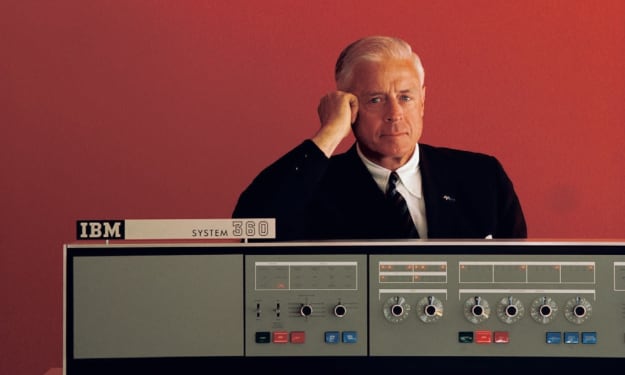Legacy of Ibn Sina and Biruni
Pioneers of the Lost Enlightenment

In the midst of the chaos and uncertainty of our modern world, one cannot help but marvel at the intellectual giants who once graced the annals of history. Two luminaries from the 11th century, Ibn Sina, known in the West as Avicenna, and Biruni, often hailed as "an eleventh-century da Vinci," stand as timeless beacons of knowledge and innovation. S. Frederick Starr's masterful work, "The Genius of Their Age: Ibn Sina, Biruni, and the Lost Enlightenment," takes us on an extraordinary journey into the lives of these extraordinary polymaths.
At first glance, Ibn Sina and Biruni may appear as products of a bygone era, but their pursuits and intellectual vigor have left an indelible mark on our world. They hailed from an Arabic-literate society, influenced by Persia and contested by ascendant Turkic powers, forming a small elite dedicated to the pursuit of knowledge for its own sake. However, they diverged significantly in terms of personality and perspective.
Ibn Sina, born around 980, was a gregarious figure with a burning desire to create a comprehensive intellectual framework that spanned philosophy, science, medicine, and religion. In contrast, Biruni, born in 973, was an introverted scholar who spent much of his life in solitary contemplation, reveling in the study of discrete phenomena and generalizing only based on meticulous observations.
Starr, an authority on Central Asian politics and history, structures his exploration of these two luminaries in a parallel biographical format reminiscent of Plutarch's "Parallel Lives." This approach helps us appreciate the distinctions between these two scholars while recognizing their shared commitment to the pursuit of knowledge.
Ibn Sina and Biruni's journey toward genius began early in their lives. Their upbringing, immersed in the Quran, hadith, and the works of Aristotle, laid the foundation for their lifelong quest for knowledge. Aristotle's broad spectrum of knowledge and profound inquiry served as both inspiration and a yardstick against which they measured themselves. While Ibn Sina sought mastery over Aristotle's works, striving to construct a more comprehensive structure of knowledge, Biruni was more inclined to question and revise Aristotle's ideas.
In an intriguing exchange of letters from 997-998, discovered in a Cairo archive, Biruni and Ibn Sina debated Aristotle's methods and conclusions. Their differing views on the Greek philosopher's authority and influence demonstrate the depth of their intellectual engagement.
Their achievements are equally staggering. Ibn Sina's "Canon of Medicine" and Biruni's meticulous measurement of the Earth's diameter are just a few examples of their groundbreaking contributions. What is most remarkable is that these prodigious achievements were realized in their youth. Ibn Sina's first two major works, "A Compendium of the Soul" and "The Compilation," were completed before he reached the age of twenty.
Yet, as Starr reminds us, their mature years were far from tranquil. They lived through tumultuous and violent times, especially during the years 992-995 when their worlds were upended by the fall of the Samani dynasty in Central Asia.
For Biruni and Ibn Sina, these years of upheaval marked a turning point in their lives. Despite losing their possessions, scientific instruments, and books, they remained steadfast in their pursuit of knowledge. Their commitment to learning was unshaken in the face of adversity.
Patronage during their careers was often unpredictable and at times brutal. Biruni served as a court scientist to Emir Qabus of Gorgan, who displayed both generosity and cruelty in equal measure. Later, Mahmud of Ghazni, Biruni's master, was known for his brutal methods, including having his enemies trampled to death by elephants.
In the end, while it's impossible for most of us to reach the intellectual heights of Ibn Sina and Biruni, we can still draw inspiration from their unyielding curiosity and their unwavering commitment to knowledge. As we navigate our way through this modern world, we can ask ourselves, "Is it not better to leave this world knowing the answers to our questions than not knowing them at all?"
"The Genius of Their Age" offers a captivating glimpse into the lives of two extraordinary scholars and the era in which they thrived. Ibn Sina and Biruni's legacy reminds us that even in the most tumultuous times, the pursuit of knowledge remains a beacon of hope, illuminating the path toward a brighter future.
About the Creator
Muhammad Mohsin
I'm a writer weaving words into worlds, an artist, singer, poet, storyteller and dreamer. Let's explore new dimensions together through the power of storytelling
Enjoyed the story? Support the Creator.
Subscribe for free to receive all their stories in your feed. You could also pledge your support or give them a one-off tip, letting them know you appreciate their work.






Comments
There are no comments for this story
Be the first to respond and start the conversation.